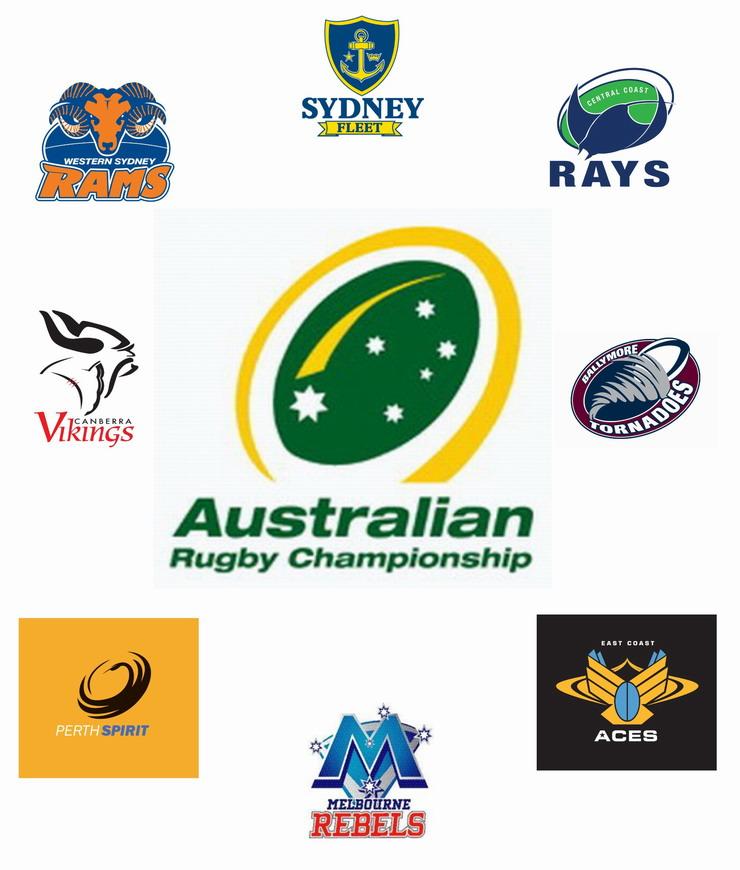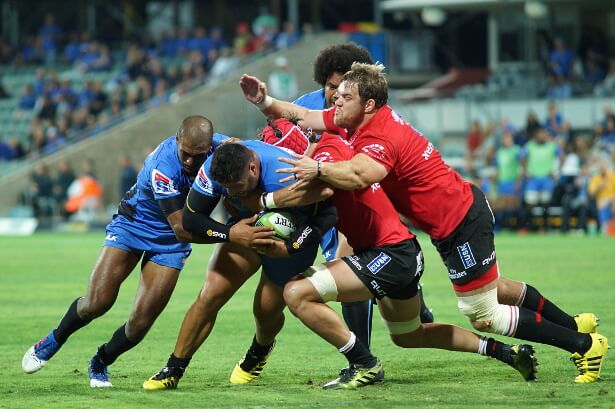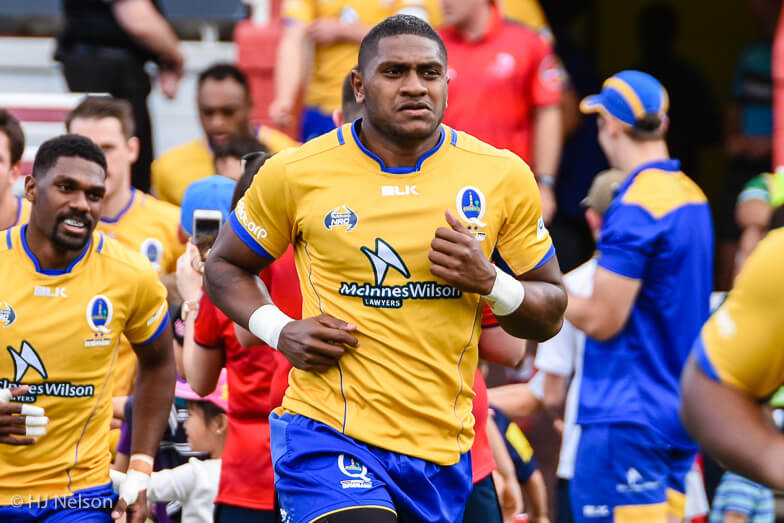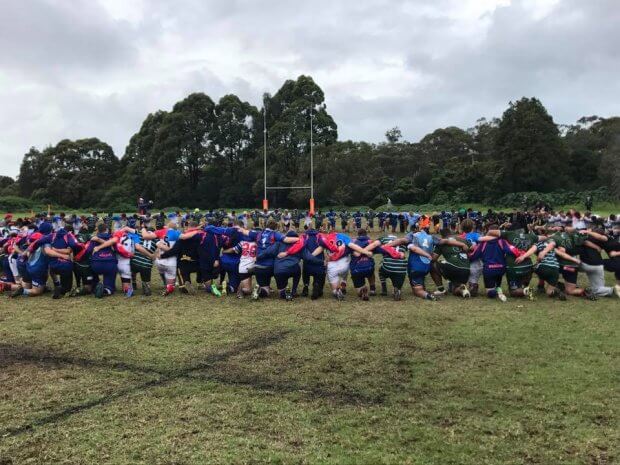“People care. It matters. It’s something that rugby’s been missing.”
With these words, Warringah lock Cameron Treloar summed up the state of the landscape of Australian rugby in 2017, where, against all the odds, club rugby may have sensationally found it’s way to the top of the footy pyramid once again.
10-15 years ago, with Super Rugby enjoying it’s “golden age”, club rugby was thought almost superfluous to requirements in the setting of Aussie rugby.
The vaunted Australian Rugby Championship was just around the corner, with ARU Chief Executive Gary Flowers believing the competition was necessary to keep pace with New Zealand and South Africa.
Club rugby was fast fading into the background of the Australian rugby scene.
The sport was growing in the country, and that involved outgrowing its’ traditional, occasionally “elitist” roots in affluent pockets of Sydney and Brisbane.
The adding of the ARC to the Aussie rugby fold, as well as the much-publicised debut of the Western Force, all signalled that rugby was moving away from an acquired taste, that one may perhaps be born into, to a truly national sport.

But as they say, the road to hell is paved with good intentions – something the men running the game in this country have never been short on, but never quite had the true foresight to execute properly.
Without gruesomely reopening too many old wounds, the ARC was a disaster from start to finish of its’ embarrassing two month stay in Australian rugby.
The competition was nothing short of a literal waste of almost 5 million precious ARU dollars, despite Gary Flowers attempting to educate us that the failed league did meet many player development goals.
Talking to Western Force supporters, you get the sense that the ARU has almost done everything they possibly can to prevent rugby from succeeding in a state hungry for the game they play in heaven.
Again, this is an issue that deserves an article of its’ own, but the unfortunate men from the west look sure to be the casualties in a 2018 Super Rugby shake up that is likely to see one of the Aussie teams cut.
Even your staunchest Super Rugby fans (myself included) cannot deny that, over the last 18-24 months, the competition has become, well, boring.
I’ve always enjoyed watching New Zealand and South African teams play, in addition to the five Australian teams, but keeping up with them, especially the South Africans, has always been a challenge, given their unfriendly time zones.
The addition of the Jaguares, Sunwolves, and even the Southern Kings, was quite clearly a bridge too far.
Again, good intentions of both growing SANZAAR’s competitive links, expanding the game in a short-on-rugby province in SA, and injecting money into the competition, has all come at the expense of the fan’s connection to the product.
As SANZAAR administrators have found out, that personal connection to the product is something that just cannot be compromised on.
A rugby mad person such as myself is now simply too disconnected with the rest of the competition to enjoy the different happenings and story lines from other conferences – and this is before we get into the formatting and results.
The Lions’ run to the Super Rugby Final last year was a fascinating one. The once annual whipping boys of the competition had finally grown into their strong Currie Cup results, and it was great for the union.

Unfortunately, Australian and New Zealand fans missed almost all of this fantastic story line. Whilst the bulk of it was being written, we were all asleep.
All these unfortunate decisions, starting circa 2007, when club rugby looked on it’s last legs, have conspired to revitalise what makes rugby great in the first place – the people, the clubs, and the competition.
In laymen’s terms, it has taken rugby in this country being brought almost to its’ knees for us to realise why we got involved in the first place.
Some of you may have noticed the “make club rugby great again” catch cry that has caught on around the Shute Shield in recent times.
Despite also being an amusing play on the slogan trumpeted by the leader of the free world, this is far from just contrived dogma.
This motto represents a genuine belief in those involved with club rugby that our local teams and tribes have a chance to do something great again, like we once did every Saturday.
To lead a competition that was once such a large part of our enjoyment of rugby back to where it belongs.
Before last fortnights’ Battle of the Beaches’, Manly Marlins President Anthony Bergelin was quizzed as to why the match is always such an important day to those on the peninsula.
“It’s ingrained in us, everyone feels that connectivity to the teams,” Bergelin said, hopeful of his first placed Manly team again denying their neighbours on home turf.
“You’re either born a Rat or you’re born a Marlin. You’re either green or you’re blue. You either drink at The Newport or you drink at The Steyne,”
In past years, Aussie rugby has been moving so fast (or at least attempting to), that we have forgotten these mantras.
Forgotten has been how we started out in rugby, who nursed us when we were learning footy, who provided us with the mates that we watch the Wallabies with today, and who helped us to love this great game.
Put simply, we’ve forgotten, and in the past, been told to, forget our roots.
“It’s up to us to grow the game, and we’ll continue to do that as best we can.” Bergelin finished.
His last quote came seemingly well in the knowledge that he owns the thankless task of introducing future international to the game, only to see them soon “outgrow” their club and go onto the bigger and better.
Despite one of his own juniors, Michael Hooper, captaining the Australian team just one week later, if you were to ask Bergelin whether he would be receiving a “thank you” from the ARU, I don’t think he’d be holding his breath.
Of course, club rugby is also benefiting from the higher, more exciting level of play we’ve seen in recent seasons – a rare positive that is often surprisingly missed given the amount of discussion of grassroots talent in Australia.
We are finally beginning to again see club rugby players make a jump to Super Rugby and make an immediate impact.
Tom Banks, Bryce Hegarty, Isi Naisarani, Alex Newsome, Adam Korcyzk and Will Miller, have all made the jump at one stage this year from prep to pros, and have fit in seamlessly, some even being earmarked as future Wallabies.

The 2017 Shute Shield season has been far closer than many would’ve anticipated.
The Penrith Emus still prop up the bottom of the standings, but have been in almost every match they’ve started this year.
One particularly strong outing Penrith have enjoyed came in Round 9, when the Emus grabbed a 4-try bonus point against the Fish in front of their home fans.
In such a traditionally strong rugby region, its certainly encouraging to see Julian Huxley moving things well and truly in the right direction at Nepean Park.
Once again, the Fins rule the roost in the Shield this year, sitting atop the table at 10-1, but have looked far from unbeatable.
They’ve at times been pressured by the likes of Easts, and have conceded at least 24 points in 5/10 matches this year.
A quick glance at my bio on the left of the screen will show you where my allegiances lie.
Come out to the Inner-West and visit the mighty West Harbour Pirates some time this year. If you see me, come and say hi.
We’re doing great things at Concord Oval under new Head Coach Todd Louden, and the belief around the place is as high as I’ve seen it in a while.
“People care. People genuinely invest. It matters.”
Treloar’s words post the Battle of the Beaches last fortnight, after his Rats came away with their first victory at Manly Oval since 2007, echoed how club rugby is filling a void in people’s lives that Super Rugby has been failing to do.
It’s a pity that it has in part taken poor SR results and disillusionment to get there, but club rugby is offering communities of rugby fans the essence of why we not only watch rugby, but return to it – investment, purpose and passion.
We’re not only making club rugby great again. We’re offering rugby fans what they’ve been missing – passion, desire, love, and a bunch of other emotions that good rugby creates.
Put simply, it’s rugby that matters.


